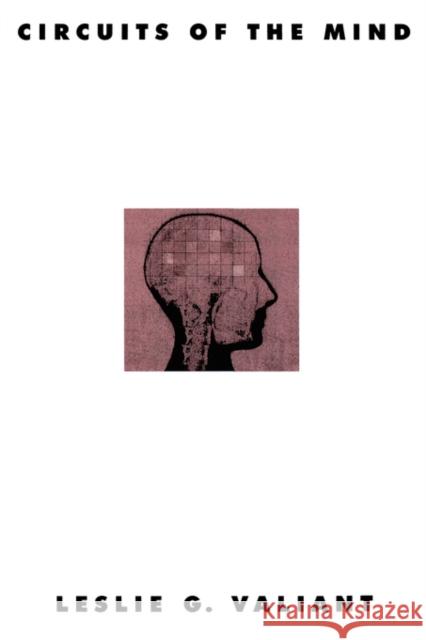Circuits of the Mind » książka
Circuits of the Mind
ISBN-13: 9780195126686 / Angielski / Miękka / 2000 / 256 str.
In this groundbreaking work, computer scientist Leslie G. Valiant details a promising new computational approach to studying the intricate workings of the human brain. Focusing on the brain's enigmatic ability to access a massive store of accumulated information very quickly during reasoning processes, the author asks how such feats are possible given the extreme constraints imposed by the brain's finite number of neurons, their limited speed of communication, and their restricted interconnectivity. Valiant proposes a "neuroidal model" that serves as a vehicle to explore these fascinating questions.
While embracing the now classic theories of McCulloch and Pitts, the neuroidal model also accommodates state information in the neurons, more flexible timing mechanisms, a variety of assumptions about interconnectivity, and the possibility that different areas perform different functions. Programmable so that a wide range of algorithmic theories can be described and evaluated, the model provides a concrete computational language and a unified framework in which diverse cognitive phenomena--such as memory, learning, and reasoning--can be systematically and concurrently analyzed.
Included in this volume is a new preface that highlights some remarkable points of agreement between the neuroidal model and findings in neurobiology made since that model's original publication. Experiments have produced strong evidence for the theory's predictions about the existence of strong synapses in cortex and about the use of precise timing mechanisms within and between neurons. The theory also provides a quantitative explanation of how randomly placed neurons can be harnessed as resources for general purpose learning and memory--and is therefore synergistic with the striking recent discovery of neurogenesis in cortex.
Requiring no specialized knowledge, Circuits of the Mind, masterfully offers an exciting new approach to brain science for students and researchers in computer science, neurobiology, neuroscience, artificial intelligence, and cognitive science.











